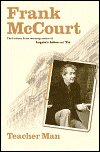 In case you haven’t noticed the change in my sidebar reading list, I’ve finally finished “Vanishing Acts”. It was a good book, but like most of Picoult’s novels, I was stalled halfway through reading it. I’m not sure what it is exactly, but I always lose interest for a while at the midpoint. It took me more than a month to read this one. Maybe it’s just that I’m busy doing other things and don’t have the time set aside to just sit and read like I normally like to. Reading for half an hour at a time may not work for her novels, maybe that’s why I lose interest. Anyway, it’s done and I’m happy to be starting a new book.
In case you haven’t noticed the change in my sidebar reading list, I’ve finally finished “Vanishing Acts”. It was a good book, but like most of Picoult’s novels, I was stalled halfway through reading it. I’m not sure what it is exactly, but I always lose interest for a while at the midpoint. It took me more than a month to read this one. Maybe it’s just that I’m busy doing other things and don’t have the time set aside to just sit and read like I normally like to. Reading for half an hour at a time may not work for her novels, maybe that’s why I lose interest. Anyway, it’s done and I’m happy to be starting a new book.
There is nothing quite like the excitement of picking up a book you know will be fun. I bought “Teacher Man” by Frank McCourt as a Christmas gift for my DH. He is not a reader, but enjoyed “Angela’s Ashes” and “Tis”, so I got him this one. So far, he’s ignored it, so I stole it last night and started reading during my lunch hour today.
I love McCourt’s sense of humor and the way he pokes fun at himself. I think my DH decided to read “Angela’s Ashes” because he saw me cracking up so often while reading it.
From the critics:
This final memoir in the trilogy that started with Angela’s Ashes and continued in ‘Tis focuses almost exclusively on McCourt’s 30-year teaching career in New York City’s public high schools, which began at McKee Vocational and Technical in 1958. His first day in class, a fight broke out and a sandwich was hurled in anger. McCourt immediately picked it up and ate it. On the second day of class, McCourt’s retort about the Irish and their sheep brought the wrath of the principal down on him. All McCourt wanted to do was teach, which wasn’t easy in the jumbled bureaucracy of the New York City school system. Pretty soon he realized the system wasn’t run by teachers but by sterile functionaries. “I was uncomfortable with the bureaucrats, the higher-ups, who had escaped classrooms only to turn and bother the occupants of those classrooms, teachers and students. I never wanted to fill out their forms, follow their guidelines, administer their examinations, tolerate their snooping, adjust myself to their programs and courses of study.” As McCourt matured in his job, he found ingenious ways to motivate the kids: have them write “excuse notes” from Adam and Eve to God; use parts of a pen to define parts of a sentence; use cookbook recipes to get the students to think creatively. A particularly warming and enlightening lesson concerns a class of black girls at Seward Park High School who felt slighted when they were not invited to see a performance of Hamlet, and how they taught McCourt never to have diminished expectations about any of his students. McCourt throws down the gauntlet on education, asserting that teaching is more than achieving high test scores. It’s about educating, about forming intellects, about getting people to think. McCourt’s many fans will of course love this book, but it also should be mandatory reading for every teacher in America. And it wouldn’t hurt some politicians to read it, too. (Nov. 15) Copyright 2005 Reed Business Information.
Having just finished Jonathan Franzen’s book Corrections I know what you mean about books that lose their meaning when you’re stuck with thirty minute reading intervals. Franzen has observed, in a New Yorker essay, that people read about five books a year. If that were true, you’d have (life expectancy) – (age) * 5 books left in your life — for me, maybe 150. Good grief. There are more than that queued up on my shelf already. Clearly, I’m going to have to give up something else in my life to catch up.
I better get busy reading too, MaryAnn. 5 books a year is nothing to me, but would guess that is pretty typical of most people.
I have seen a sharp decline in the amount of reading I do, now that I don’t smoke. I used to take a nice long bubble bath every night, and read and smoke. I got through a book about every week or so. Now I’m lucky to get one in once a month. Oh, well…
Teacher Man sounds fun. I will have to go pick it up.